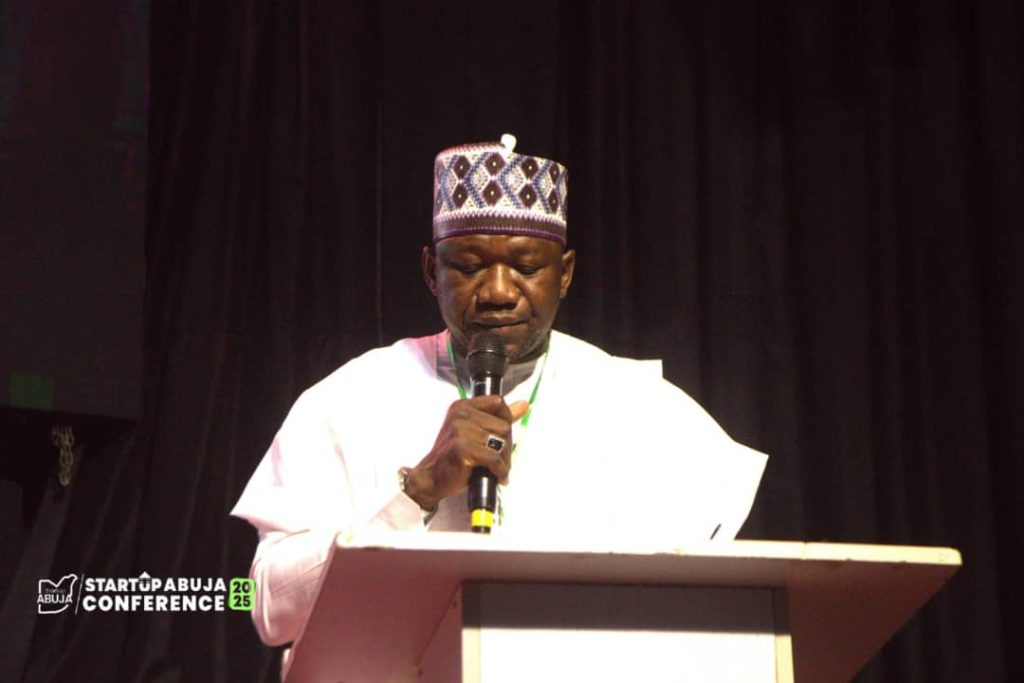At the Start-Up Abuja Conference 2025, Kabir Umar Dasuki—CEO of DUKE Logistics & Consult Ltd—delivered a powerful keynote on the role of artificial intelligence and automation in modernizing government operations. With his background in logistics, consulting and innovation leadership, Dasuki brought deep insight into how digital systems can elevate Nigeria’s public sector from resource-driven to innovation-driven growth.

In his words, “Nigeria is a hard-working nation producing below its potential. To change this, Nigeria must shift from resource-driven growth to innovation-driven growth.”
This statement set the tone for a deep reflection on the need to reimagine public service through technology — especially AI — as a strategic tool for productivity, transparency, and citizen engagement.
Dasuki’s first challenge to policymakers was philosophical but practical: Nigeria’s progress must be powered by innovation, not extraction.
In the same way AI has transformed private industries — from logistics to finance — he argued that governance itself must become data-driven, automated, and citizen-centered.
By shifting to “innovation-driven growth,” Dasuki envisions ministries, departments, and agencies that rely on predictive analytics to anticipate public needs, AI chatbots to improve service response, and automation systems to reduce corruption and inefficiency.
He underscored that innovation cannot thrive in isolation. “Innovation cannot be sustained on private ambition alone; it must be institutionalised as policy,” he said, urging government agencies to embed digital transformation into their DNA rather than outsource it to startups or donor projects.
According to Dasuki, the greatest risk to Nigeria’s digital transformation isn’t the lack of talent — it’s the absence of a unified policy framework that makes innovation sustainable.
By advocating for institutionalised innovation, he called on government leaders to treat AI as a policy priority, not a buzzword.
This would mean establishing national AI governance guidelines, funding research and development, and promoting data-sharing policies between government and private innovators.
He reminded the audience that Nigeria currently spends less than 0.3% of its GDP on research and development, far below the African Union’s recommended 1%. “Increasing this investment is not charity but strategy,” he said — highlighting that true AI innovation requires sustained commitment, not sporadic projects.
Dasuki’s closing thoughts linked technology adoption to infrastructure growth.
“Every 10% increase in broadband penetration can raise GDP growth by 1.5%. Infrastructure is not just physical, but digital.”
This insight reflects a deep understanding of what powers AI systems — connectivity and data access.
He stressed that without reliable broadband and secure data frameworks; Nigeria cannot build AI-enabled public systems such as:
Dasuki’s message was clear: AI is not futuristic — it’s infrastructural. The sooner Nigeria integrates AI into public service delivery, the closer it gets to achieving true national efficiency.
Kabir Umar Dasuki’s speech at Start-Up Abuja wasn’t just a keynote — it was a roadmap for public sector reform. His call for innovation-driven governance, institutionalised AI policy, and digital infrastructure investment sets a powerful agenda for how Nigeria can build a smarter, more responsive government.
In an era where data is power, Dasuki’s vision reminds Nigeria that the next oil boom will be digital — powered by AI, policy, and people.
DUKE Logistics & Consult Ltd is a Nigeria-based firm that offers an integrated suite of logistics, transport and strategic consulting services. With headquarters in Abuja (No. 12 Kolda Street, Off Ademola Adetokunbo Crescent, Wuse 2, FCT), the company combines hands-on transport operations—tricycles, automobiles, vehicle fleet management—with expert consulting in supply-chain optimisation and logistics planning, designed to boost mobility, trade and enterprise efficiency. On the consulting side, it supports clients through technology-based services like project management, financial strategy development, feasibility studies and business-plan preparation—aiming to accelerate innovation and infrastructure growth across sectors.